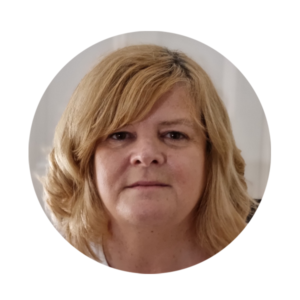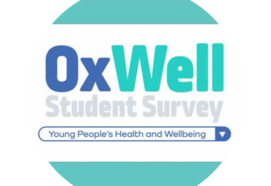This practically focused online conference, organised by ACAMH Scottish Branch, will have talks from clinicians, education professionals, leading agency and charity professionals, and Public Health Scotland. Join us for the latest evidence-based research, and learn how you and your colleagues can better support those in need.
Who should attend
Mental health professionals, health professionals, education professionals, social workers and allied professionals, and those interested in the topic.
Key takeaways
- How to identify better children and young people at risk of suicide and how to talk to them
- Improved knowledge of range of services available to support children young people and their families
- Improved knowledge about the differences in what differing services have to offer.
About the talks
Julie Metcalfe, Clinical Director CAMHS NHSGGC
‘Suicide Risk in under 18s: Covid & its Impact’
The presentation will focus on young people who are being seen in Child & Adolescent Mental Health Services in the most populated area of Scotland. The presentation includes anonymised descriptions of young people seen and descriptions of risk factors and changes in presentations during the Covid-19 lockdown period.
Key takeaways
- To understand a current pattern of self-harm in under 18s in a large urban area over the Covid-19 period
- To understand changes in patterns of high risk presentations of young people in distress
- To consider implications for multi-agency support for young people at high risk of serious self-harm
Ainsley McGoldrick, Senior Educational Psychologist, East Renfrewshire Educational Psychology Service
‘Suicide and Schools: The Role of Education Staff in Supporting Young People in Crisis’
The emotional health and wellbeing of children and young people is causing increasing concern across the UK and stretched services are struggling to meet the demand. School staff are often in the best position to support the needs of young people with strong relationships built over many years with students and their families. However, how do school staff continue to manage this with the ever changing and increasingly complex wellbeing needs presented by children and young people, particularly those disclosing self-harming behaviour and thoughts of suicide? We will explore the challenges presented by supporting young people in crisis, the role of teachers and other education staff in supporting young people and how practitioners can keep themselves safe while undertaking this incredibly challenging but important job.
Key takeaways
- To understand the challenges of supporting children and young people who are disclosing thoughts of suicide in an education setting.
- To consider the role of education staff in supporting children, the use of language and strategies that can help.
- To explore what education staff need when supporting children and young people in distress.
Maria Dale, Principal Educator NHS Education for Scotland. Session delivered by Public Health Scotland and NHS Education for Scotland (NES)
The Mental Health Improvement, Self-Harm and Suicide Prevention team at NHS Education for Scotland and Public Health Scotland working collaboratively on Action 2, Every Life Matters, Scotland’s Suicide Prevention Action Plan (SPAP) 2018 – 2021 (Scottish Government, 2018), have developed in collaboration digital learning resources which will support the CYP workforce.
Speakers
Julie Metcalfe, Clinical Director CAMHS in NHS Greater Glasgow & Clyde.
Julie Metcalfe is a Consultant Clinical Psychologist and has been Clinical Director of Children and Young People’s Mental Health Services in one of the largest health organisations in the UK for over 10 years.
She leads a service that has expanded in response to the needs of the local population and focused on meeting needs of the most vulnerable groups including those with learning disabilities, neurodevelopmental diversity, those at high risk of offending and those with complex trauma histories. Julie has worked in outpatient and inpatient children’s mental health services and is currently leading clinical research with colleagues focused on understanding young people’s engagement with mental health services and mental health support services.
Ainsley McGoldrick, Senior Educational Psychologist in East Renfrewshire Council.
As an Educational Psychologist she supports children, young people and families from preschool through to secondary age with a wide range of additional support needs. Ainsley also has a specific interest in children and young people’s mental health and wellbeing, and works as part of the authority’s multi-agency Heathier Minds service. Ainsley has led the development and implementation of a range of authority training courses, materials and resources for practitioners working with children and young people in the areas of bereavement, loss and grief; eating problems and disorders; self-harm and suicide. This has included close collaboration with agencies and organisations across Scotland. Access to some of Ainsley’s work can be found on the Healthier Minds.

Maria joined NHS Education for Scotland (NES), in 2015 as a Principal Educator in the CAMHS work stream and since 2019 has also works as part of the Mental health Improvement and Suicide Prevention team. Maria is passionate about children and young people’s mental health and has spent most of her professional career in CAMHS where she worked both as a social worker and clinical nurse specialist. Maria’s interest in suicide prevention began while working as a clinical nurse specialist in Glasgow, where she jointly set up and managed the Self Harm Service. In her current role in the Mental health Improvement and Suicide Prevention team at NES, Maria was part of the writing and development team for Mental Health Improvement and Suicide Prevention knowledge and Skills Framework and led on the development of the animated Learning Resources – Promoting Children and Young People’s Mental Health and preventing Self Harm and Suicide.



